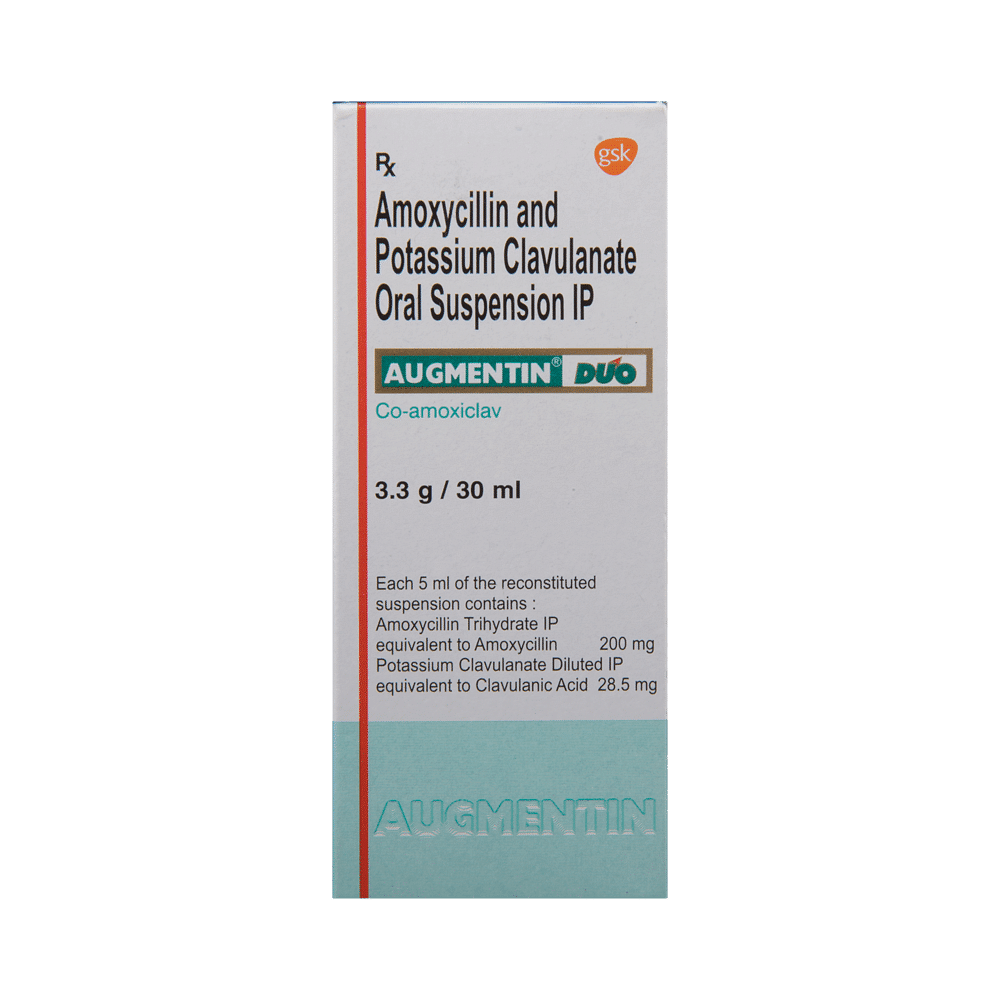
Gazomox-CV Dry Syrup
Manufacturer
Cassopeia Pharmaceuticals Pvt Ltd
Salt Composition
Amoxycillin (200mg) + Clavulanic Acid (28.5mg)
Key Information
Short Description
Gazomox-CV Dry Syrup is an antibiotic medicine that helps treat bacterial infections of the ear, nose, throat, chest, lungs, teeth, skin, and urinary tract.
Dosage Form
Oral Suspension
Introduction
Gazomox-CV Dry Syrup is an antibiotic medicine that helps treat bacterial infections of the ear, nose, throat, chest, lungs, teeth, skin, and urinary tract. It is capable of killing bacteria that have become resistant to other therapies and thus also helps treat tuberculosis that is resistant to other treatments.
Directions for Use
Your child must complete the entire course of antibiotics. Stopping too soon may cause the bacteria to multiply again or cause another infection.
How it works
Gazomox-CV Dry Syrup is an antibiotic. It has two active agents amoxycillin and clavulanic acid. Amoxycillin works by preventing the formation of the bacterial protective covering (cell wall) essential for the survival of the bacteria. Whereas clavulanic acid serves a special purpose of inhibiting an enzyme (beta-lactamase) that is produced by resistant bacteria. This makes the combination of amoxycillin and clavulanic acid an effective line of treatment for many types of infections.
Quick Tips
Your child must complete the entire course of antibiotics. Stopping too soon may cause the bacteria to multiply again or cause another infection. Your child may have a bitter taste in the mouth after the intake of Gazomox-CV Dry Syrup. Eating citrus fruit or sipping plenty of water or fruit juice may help. Encourage your child to drink plenty of water in case diarrhea develops as a side effect. Never give Gazomox-CV Dry Syrup until and unless prescribed by the doctor. Do not give Gazomox-CV Dry Syrup to treat common cold and flu-like symptoms caused by viruses. Never save medicine for future illnesses. Check ‘expiry’ before giving Gazomox-CV Dry Syrup to your child. Immediately discard all the expired medicines. Stop Gazomox-CV Dry Syrup immediately if your child develops an itchy rash, facial swelling, or breathing difficulty. Report to the doctor without any delay.
Related Medicines

Augmentin Duo Suspension

Clavluk Oral Suspension

ACL-Duo Dry Syrup

Amoxyrich CV Oral Suspension

Cloxitor Oral Suspension

Ofymox-CV Oral Suspension

Gladyclav 228.5 Dry Syrup

Pepylav Dry Syrup

K-Mox-CV Dry Syrup

Wybiclav 228.5 Oral Suspension
Frequently asked questions
Can other medicines be given at the same time as Gazomox-CV Dry Syrup?
Gazomox-CV Dry Syrup may interact with other medications. Before starting Gazomox-CV Dry Syrup, inform your child's doctor about all other medications your child is currently taking. Always consult a healthcare professional before administering any medication to your child.
Can I get my child vaccinated while on treatment with Gazomox-CV Dry Syrup?
Generally, antibiotics do not interfere with vaccinations or cause adverse reactions in children who have recently received them. However, it is recommended that your child receive the vaccine after recovering from the illness. Once your child feels better, a doctor can evaluate and administer the vaccine.
Which lab tests may my child undergo while taking Gazomox-CV Dry Syrup on a long-term basis?
Periodically, the doctor may assess kidney and liver function during prolonged therapy to monitor your child’s condition. These tests ensure your child's health is being maintained.
Can I give a higher than the recommended dose of Gazomox-CV Dry Syrup to my child?
Giving a higher dose of this medication could increase the risk of side effects. If your child experiences an aggravation of symptoms, consult your doctor for reassessment.
Can I stop giving Gazomox-CV Dry Syrup to my child when the symptoms are relieved?
Do not discontinue this medication until the full course is completed. Even if you feel better, the medicine may be beneficial and continue to aid in the infection's recovery.
Can Gazomox-CV Dry Syrup cause diarrhea?
Yes, Gazomox-CV Dry Syrup can potentially lead to diarrhea. This is because it kills harmful bacteria. Additionally, the medicine may disrupt healthy bacteria in your child’s gut and cause diarrhea. If your child experiences diarrhea, encourage them to drink plenty of water or other fluids. Seek medical advice if you observe any signs of dehydration like less frequent urination with dark-colored and strong-smelling urine, do not administer any medications without consulting a doctor.
Do all viral common colds result in secondary bacterial infection?
Most viral cold infections do not require or warrant the use of antibiotics. Antibiotic administration for a non-bacterial condition can increase your child's risk of developing side effects and complications.
The mucus coming out of my child’s nose is yellow-green. Is it a sign of a bacterial infection?
A change in the color or consistency of mucus, like a change from clear to yellow or green, is not necessarily a sign of bacterial infection. It's normal for mucus to thicken during common cold and change in color. These symptoms typically subside within 7-10 days.
Is there any sign which shows that my child needs immediate medical attention?
In case of severe allergic reactions (difficulty breathing, skin rashes), gastrointestinal problems (diarrhea) and liver damage (weakness, paleness, vomiting), consult a doctor immediately. These symptoms can be serious and require professional care.


